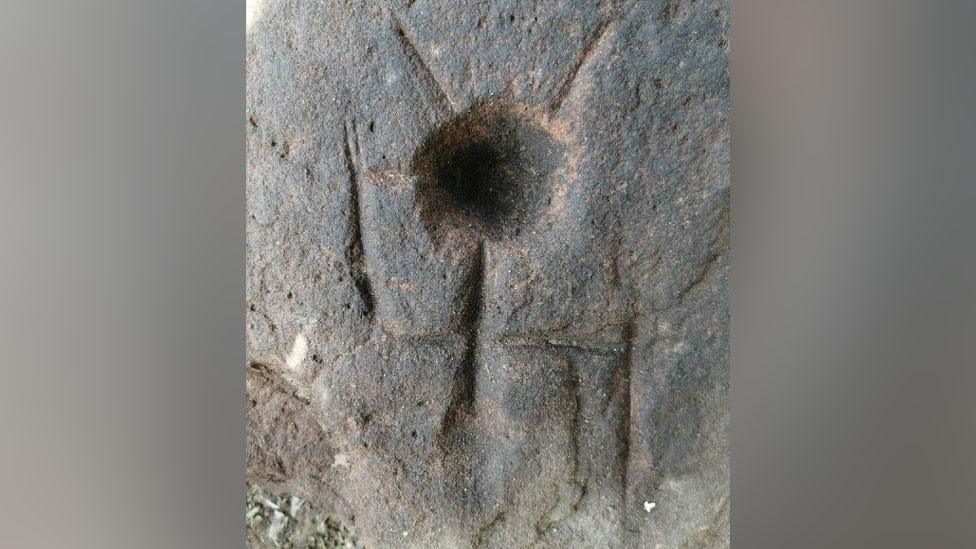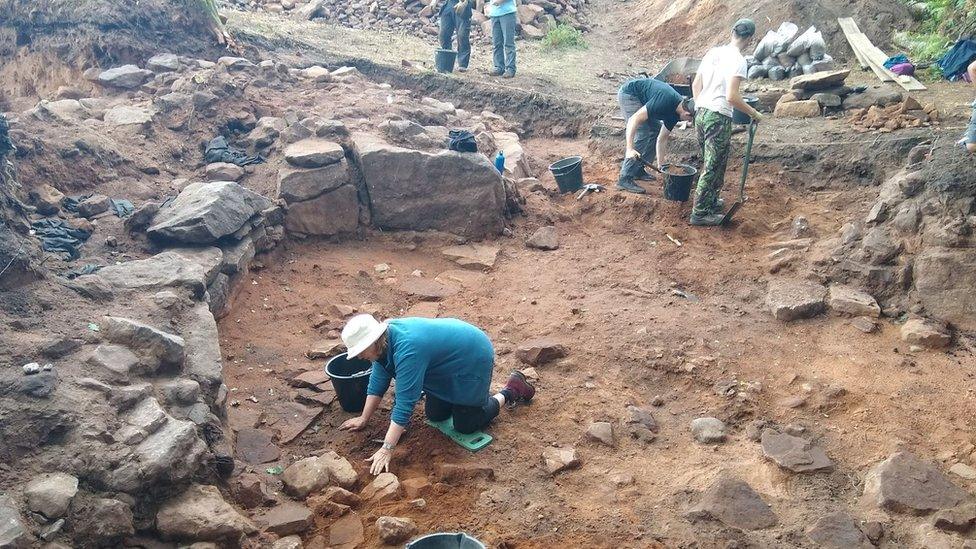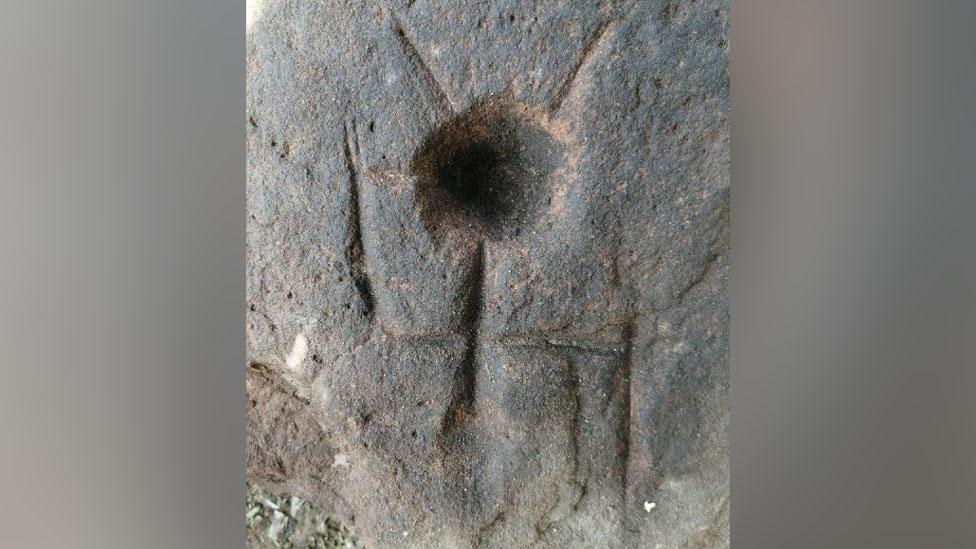Widespread response to Nesscliffe Hill sandstone carving puzzle
- Published

Archaeologists have been inundated with ideas about the carvings
Two archaeologists say they have been inundated with suggestions after an appeal to solve the meaning of mysterious sandstone carvings.
The stone piece was found last summer at Nesscliffe Hill, near Shrewsbury, by Dr Paul Reilly and Gary Lock.
They recently asked for the public's ideas about the carvings that seem to represent a figure.
They have had replies from as far afield as America.
"We are absolutely delighted it has sparked so many people's imaginations," Dr Reilly said.
Nesscliffe Hill is managed by Shropshire Council and contains an Iron Age hillfort later occupied by the Romans.
The stone has been called the Nessglyph and it was found in part of an area previously explored in the 1950s and filled in.
Due to being discovered in an excavation trench, Dr Reilly said the piece was more difficult to identify but people had given them plenty of food for thought.
"People have suggested that we need to rotate the stone and it could represent a pregnant woman, others have suggested the character is holding a weapon, others, a tool of some description, and even that it may be an archer," said Dr Reilly, from the University of Southampton.
He had previously told the BBC the carvings looked to be a figure with four horns and two arms but his team had struggled to work out when and why it was created.
He said earlier this month: "It is also worth noting that Nesscliffe lies within the putative territory of the Cornovii, a name that has been suggested to reference to the 'horned ones'."

The stone was found during a dig at Nesscliffe Hill in summer 2022
The archaeologists plan to secure funds to examine the stone in more detail and will return to the site in July with an invitation for people to attend an open weekend event.
"It would be lovely to meet some of the people who have messaged with their theories and share our findings with those who share our interests," Dr Reilly said.

Follow BBC West Midlands on Facebook, external, Twitter, external and Instagram, external. Send your story ideas to newsonline.westmidlands@bbc.co.uk , external
Related topics
- Published18 January 2023
